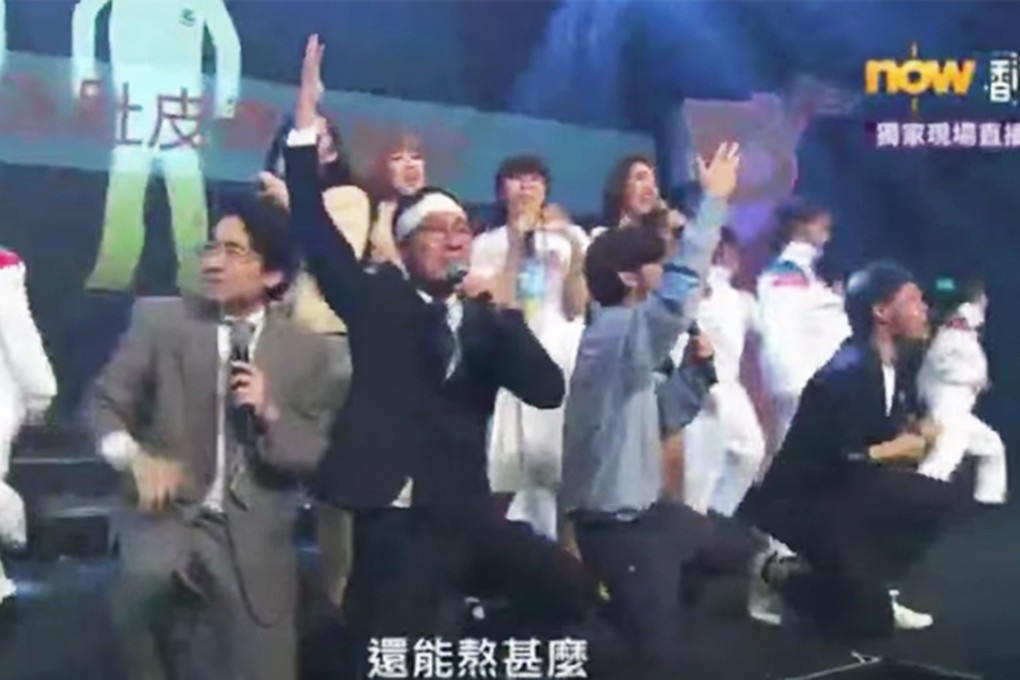Award show celebrating cover songs poking fun at Hong Kong issues goes viral as satirical content contributes to city’s cultural identity
Popularity sold-out of TV Most event points to appetite for derivative creative works, which some say are threatened by controversial copyright bill

An awards show celebrating cover songs that make fun of social and political injustice in Hong Kong has become the talk of the town, with one academic even arguing that such satirical content could contribute to strengthening Hong Kong’s cultural identity.
Discussion posts, photos and video clips of the sold-out TV Most 1st Guy Ten Big Ging Cook Gum Cook Awards Distribution, which took place at Queen Elizabeth Stadium, went viral on social media as well as receiving coverage in traditional Chinese-language media.
The show was aired live on pay TV station Now TV with a rare sponsorship from Shell. Citizens also gathered at various public spots such as Central and Shatin to watch the live cast.
READ MORE: Parent of Ming Pao Daily to sell stake in subsidiary company that runs politically sensitive satirical websites
The show was put together by multimedia website TV Most, which produces satirical video clips and cover versions of Canto-pop tunes poking fun at Hong Kong current affairs, from politics to media landscape and the education system, and other topics popular among young Hongkongers. It is founded by youth magazine 100 Most.
Support Hong Kong. Support Cantonese. Support derivative creative works.
At the event, awards were “distributed” in front of a hysterical crowd, not to A-list celebrities, but to underdogs who are seen as outcasts from the mainstream, including best male singer Gregory Rivers, an Australian actor-singer who has been living in Hong Kong for 30 years, and grand award winner Denise Ho Wan-see, the politically vocal singer who was forced to go independent after playing a prominent role in 2014’s Occupy protests.
“I haven’t watched TV in a very long time. It was my first time watching a whole show cheering all the way. Support Hong Kong. Support Cantonese. Support derivative creative works,” wrote web user Suz Tsoi.
Another web user HC Yip wrote that the fact that the availability of rich materials for derivative creations came from people’s discontent about the society was sad. “And now we can only have a good laugh from watching this show,” he wrote.

